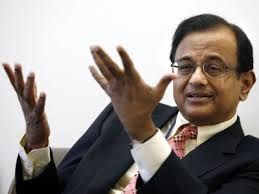
"I have no doubt in mind, when calm is restored in the market, people will begin to understand India market indicators must basically reflect Indian market conditions. They should not be so sensitive to data coming out of the US," he said on sidelines of an event here.
The BSE 30-stock index, Sensex, fell nearly 770 points or 4 per cent and the rupee breached the 62 level against the US dollar on concerns among large investors of capital curbs. The gold prices too shot up by Rs 1,310 per 10 gram to Rs 31,010.
Worried over the developments, Chidambaram said: "I think this is time for calm; this is time for reflection and let's see what happens next week."
Observing that nothing has happened in the Indian economy between Wednesday and Friday morning, the minister said, "nevertheless the markets have taken a hit and that is reflected in the rupee also. We have taken a number of measures...a number of measures are being taken. Let's wait to see what the first quarter growth rates are."
Chidambaram said markets all over the world have taken a hit in reaction to job reduction data that came out of the US.
"A fewer people are waiting for jobs in US or a few more people are waiting for jobs in US, how does it affect the fundamentals of Indian economy. It does not. I thought that is elementary...if they have come down or they go up has really no relevance or impact on Indian economy.
"Nevertheless markets react to these signals that have come out of US. They reacted in the same way on May 22 when (US Federal Reserve chief) Ben Bernanke made a statement. They reacted in the same way to jobless claims numbers in the US. Sometimes I am surprised why they reacted," he said.
In case of India, Chidambaram said, as yesterday was a holiday, "Indian market has observed two days of hit in one day which is why it appears to be severe hit".
Earlier, while launching the National Skill Certification and Monetary Reward Scheme, he underlined the need for enhancing skills of workforce to ensure that they are gainfully employed.
The Minister said money will not be a constrain as far as funding of skill development programmes are concerned.
As many as 20 million jobs have been created between 2004-5 and 2009-10 and unemployment rate has declined in the country, he said.
Speaking on the occasion, Planning Commission Deputy Chairman Montek Singh Ahluwalia said the programme would benefit people in all walks of life.





Comments
Add new comment